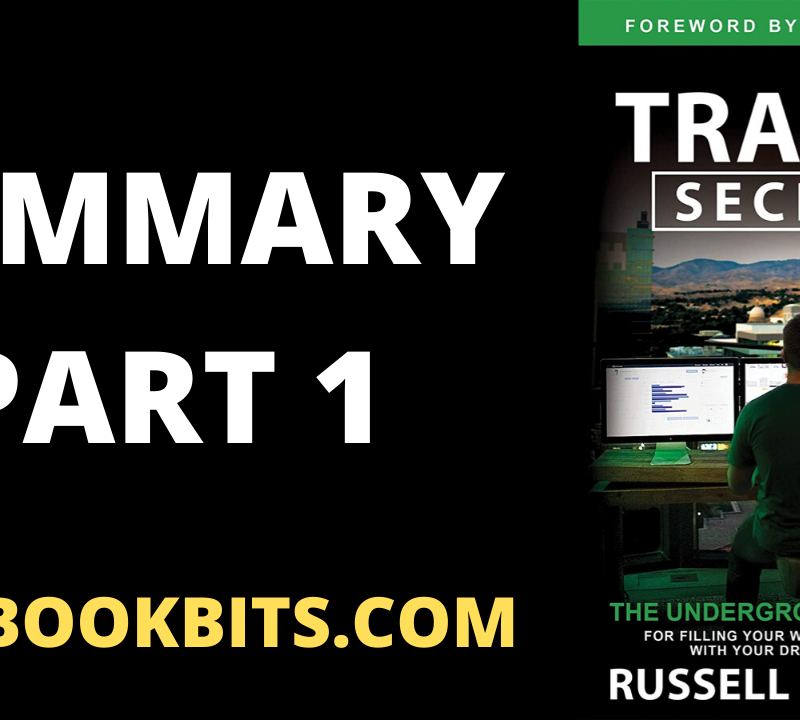★DOWNLOAD THIS FREE PDF SUMMARY HERE
? MY FREE BOOK TO LIVING YOUR DREAM LIFE”
? SPONSOR BESTBOOKBITS BY USING PATREON
? SUPPORT BESTBOOKBITS BY CLICKING THE LINKS BELOW
- 150 PDF Summaries
- Coaching Program
- Subscribe to My Channel
- Website
- Spotify
- Book Club
- Mailing List
Trust Me I’m Lying is an eye opening book about how the modern media operates, the economics that drive it and how the system can be manipulated. Author Ryan Holiday details how he himself manipulated the media, by bribing bloggers, writing their stories, pretending to be other people and defacing his own advertisements to get the media writing the stories he wanted.
Ryan describes modern media as a “monster” that is striking fear into the public domain, spreading lies and creating controversy all in the name of generating page views and income. Media manipulators like Ryan are able to feed the monster and control the content it produces.
As the media has evolved and moved online, the economics of how income is generated has changed. Now income is dependent on page views or impressions, and so bloggers are made to pump out as much content as possible in order to increase the sites advertising inventory. This leads to lower quality articles that only exist to get page views. If this means writing a controversial headline or spreading lies and “leaking” documents, then so be it. By manipulating the smaller blogs, advertisers are able to influence what larger news corporations publish as the flow of content moves up a predictable ladder.
Feeding the Monster
In this section of the book, Ryan outlines the tactics he has used
for deceiving bloggers and publishers to get them to write what he wants and promote his brands. Warning: these techniques are not necessarily encouraged, but Ryan illustrates what he has found to be most successful when it comes to manipulating the media.
- Blogs are poor. Help pay their bills – Bloggers are poor and their income depends on impressions. So help them out with free stuff. The bloggers are always trying to move up the ladder to larger publishers. When you help them early on, this may work out very cheap when they’re large and influential later.
- Tell them what they want to hear – Bloggers don’t have a lot (any) time to check sources and verify facts. Tell them what they want to hear by pretending to be an expert or giving them the information they need. Whether this is leaking a document (whether real or fake) or pretending to be an expert, the blogger will very rarely verify the sources credibility.
- Give them what spreads, not what’s good – If it’s not going to get shared socially, it may as well not exist. Usually this means sharing a story that’s controversial and evokes anger.
- Help them trick their readers – Bloggers often use misleading questions in the article headline to trick readers in to reading their post (another page view = more revenue). Usually when you click through to the article, the answer to their question is “no, of course not”. They trick readers into reading their content. Approach bloggers with these same questions and the same sense of mystery and watch as they do the same to their readers.
- Sell them something they can sell (exploit the one-off problem) – Times have changed and bloggers don’t aim to build a loyal readership. There is no subscription model for blogs and RSS is dead. All blogs are competing for attention and will shout as loud as they can to get them to hear you. Give them the ammunition to do this: sensationalism, extremism, sex, scandal and hatred.
- Make it all about the headline – As we know, blogs live and die by Help them write a headline that’s going to encourage clicks. If your story can’t be turned in to an exciting and clickable headline, they won’t run it.
- Kill ’em with page view kindness – Bloggers need to churn out multiple stories a day in order to boost their page views. So help them out to make them feel favourable about your stories so they’ll write about you again. When they run your story, post it on your company Twitter and Facebook to help boost the stats. There are even service that allow you to buy fake traffic and send it to a site. The more traffic you can send to the article, the more articles the blogger may write about you later.
- Use the technology against itself – Now that we understand why blogs write such small and frequent articles, we can use the system against itself. If you’re looking to promote a book for example, there’s no point trying to get a chapter published on a blog, it would be to long. You have to break the content up into tiny bite sized portions for the bloggers (and readers).
- Just make stuff up – Bloggers need to find the “angle” on a story in order to make it interesting and drive more social sharing and page views. Help them find this angle by making stuff up, puffing up the story and making something small look larger than it is (everyone else is doing it).
★DOWNLOAD THIS FREE PDF SUMMARY HERE
? MY FREE BOOK TO LIVING YOUR DREAM LIFE”
? SPONSOR BESTBOOKBITS BY USING PATREON
? SUPPORT BESTBOOKBITS BY CLICKING THE LINKS BELOW
- 150 PDF Summaries
- Coaching Program
- Subscribe to My Channel
- Website
- Spotify
- Book Club
- Mailing List
The Monster Attacks
In the second half of the book, Ryan outlines the consequences of the actions described above and why how no longer uses these tactics. The objective of his book is to expose the truth about how modern media works and the consequences of the system.
- There are others (a manipulators hall of fame) – When Ryan discovered there were other people manipulating the media and he could see the effects of their work, he was shocked with the results. It was when he saw the results of media manipulation from an outside perspective that he noticed the adverse effects it can have on real people lives; whether they be employees of the companies being trashed or honest figures having their words twisted by bloggers forcing them to resign.
- Cute but evil – Bloggers use tactics to keep users occupied for hours. For example, inserting pictures of hot girls in YouTube thumbnails to encourage clicks. It’s a sneaky and deceptive system that Ryan didn’t want to be part of. Ryan once noticed a famous blogger at a conference pay no attention while he worked away making Facebook posts, Tweeting, blogging and replying to comments. Ryan told himself he didn’t want to end up like this.
- The Link Economy – The small blogs don’t care about checking or linking to Either that or they take a tiny scrap of information and blow it up. When this moves up the media chain to big news sites, they will run stories based on the assumption that it’s correct. i.e. things can very quickly spiral out of control and up the ladder getting more and more ridiculous.
- Extortion via the web – Nowadays, we don’t need PR worker to create the news, they’re they to mitigate it and stop the spread of bad press.
- The iterative hustle – Bloggers will publish first and fact check and verify later. Now Ryan spends most of his time putting out fires and correcting inaccurate stories than he does trying to create the news. Iterative journalism relies on rumours, buzz and questions. Bloggers publish now and wait to be corrected later (iterations). Sites will publish rumours straight away while they see if there’s any more to the story. And if they’re lucky, the story will end up being true. If it isn’t, they will report on peoples reactions to the news they created.
- The myth of corrections – Even though blogs can be edited, iterated and changed, bloggers hate to be wrong. Getting them to take back a claim or change an article means they have to admit they made a mistake. Corrections just do not happen on the internet and when you’re trying to put out fires and correct false information, this gets very frustrating.
- The dark side of snark – Humour can be a tool for creating stories but it can also be bad when it’s used to mock and pock fun at people/companies as the bloggers simply aim to entertain. They will misconstrue what is said in order to create an entertaining story that drives page views.
- The 21st century degradation ceremony – “In the old days, men had the rack, now they have the press.” – Online lynch mobs, attack blogs, smear campaigns, snark, cyber bullying, anonymous tipsters, blog wars, trolls, trial by comments. These acts of ritualised destruction are known by anthropologists as “degradation ceremonies”. Their purpose is to allow the public to single out and denounce one of its members. To lower their status or expel them from the group.
- Welcome to unreality – This book has illustrated how blogs speculate, rush, exaggerate, distort and mislead in order to grab attention. What happens when this material becomes the basis for tomorrows news? When CNN uses Gawker’s stories? The result of millions of blogs fighting to be heard creates an unreality. A neitherworld between the fake and the real where each builds on the other and they cannot be told apart.
- How to read a blog – Just know that when you see “leaked” or “official documents”, know that these are likely to be fake. When you see “announced”, this could be as little as a Tweet. When you see “Breaking” and “We’ll have more news on this soon”, the media aren’t doing anything to confirm their facts.
★DOWNLOAD THIS FREE PDF SUMMARY HERE
? MY FREE BOOK TO LIVING YOUR DREAM LIFE”
? SPONSOR BESTBOOKBITS BY USING PATREON
? SUPPORT BESTBOOKBITS BY CLICKING THE LINKS BELOW













